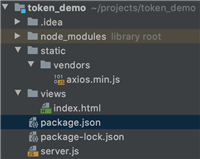最近在用node的时候排查一个问题排查了半天,最终发现是循环引用导致的问题,故在此记录一下。
场景复现
出现问题场景比较简单,一共四个类:
export abstract class parent {
abstract hello(): string;
}
import {parent} from "./parent";
export class child extends parent {
hello(): string {
return "child";
}
}
import {child} from "./child";
export class util {
static usechildinsamecase(): string {
let child: child;
return child.hello();
}
}
import {parent} from "./parent";
export class child_2 extends parent {
hello(): string {
return "child_2";
}
}
这个时候我们去构造一个child类:
import {child} from "./child";
console.log(new child().func());
就会直接报错了:
class child_2 extends parent_1.parent {
^typeerror: class extends value undefined is not a function or null
#寻找原因
说的是这个父类是一个undefined,很明显就是没有初始化。
一开始我觉得很奇怪,明明在child_2这个文件里已经import了parent,为什么会是undefined呢?后来debug查了一下代码的堆栈,恍然大悟:
入口文件->child.ts->parent.ts->util.ts->child_2.ts->parent.ts
很明显这里存在着一个循环引用,当我们在加载child_2.ts这个文件的时候,parent.ts还处在未加载完的状态。
我们可以去 。
通过官网我们可以知道,对于这样的循环引用,在child_2.ts加载parent.ts的时候,会去缓存中寻找,而由于parent.ts还未加载完成,所以缓存中会是一个空对象了,官网中用的语句是 an unfinished copy of the a.js 。
解决方案
知道原因之后,解决方案也就变得清晰了起来,一句话搞定,将parent.ts中的import语句放在后面:
export abstract class parent {
abstract hello(): string;
func(): string {
return util.usechildinsamecase();
}
}
import {util} from "./util";
这样在加载parent.ts的时候,就会先export对象,然后再import所需要的util.ts了。
总结
以上就是这篇文章的全部内容了,希望本文的内容对大家的学习或者工作具有一定的参考学习价值,谢谢大家对移动技术网的支持。
如对本文有疑问, 点击进行留言回复!!

使用npm命令提示: 'npm' 不是内部或外部命令,也不是可运行的程序的处理方法




Node Express用法详解【安装、使用、路由、中间件、模板引擎等】
Node Mongoose用法详解【Mongoose使用、Schema、对象、model文档等】
网友评论